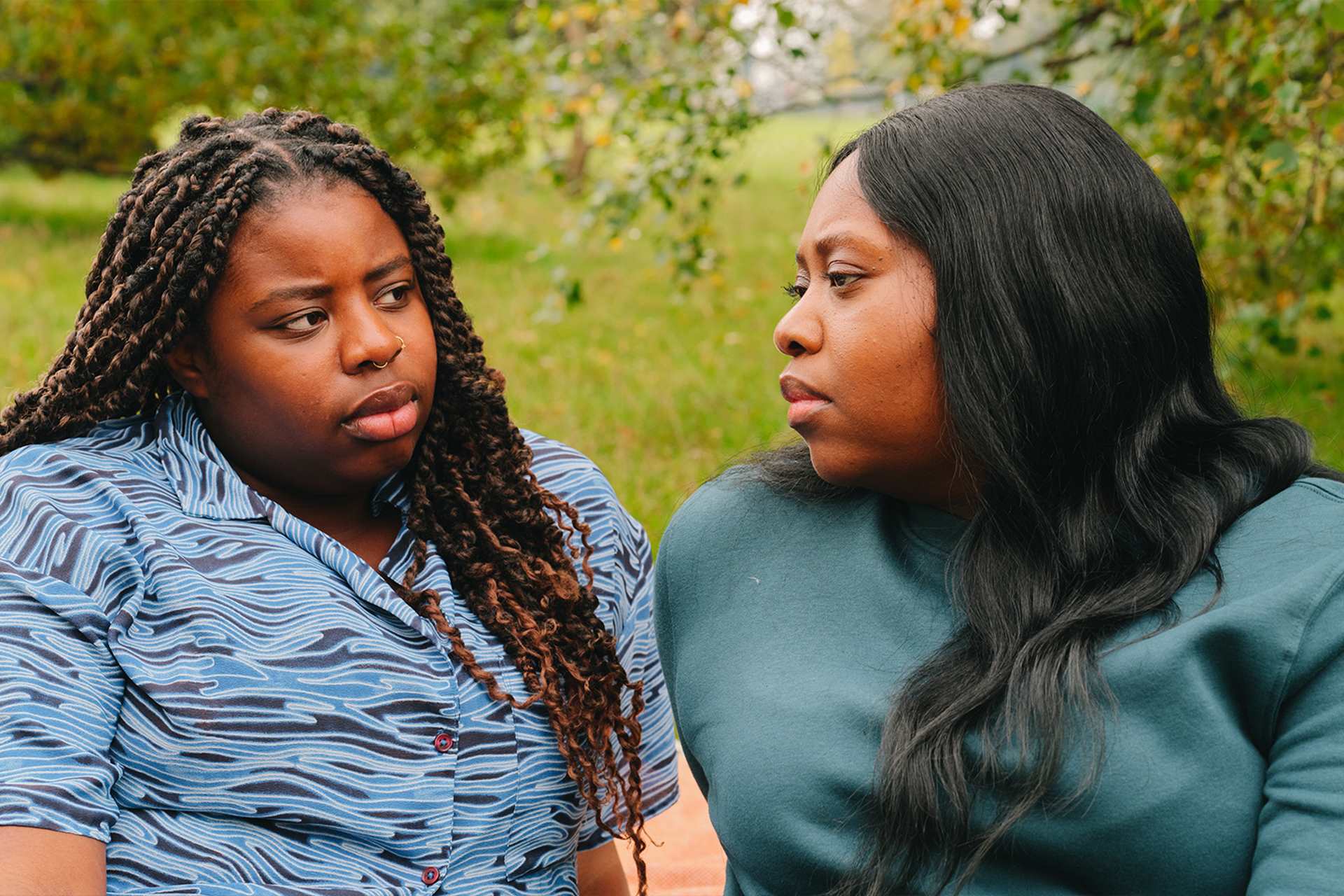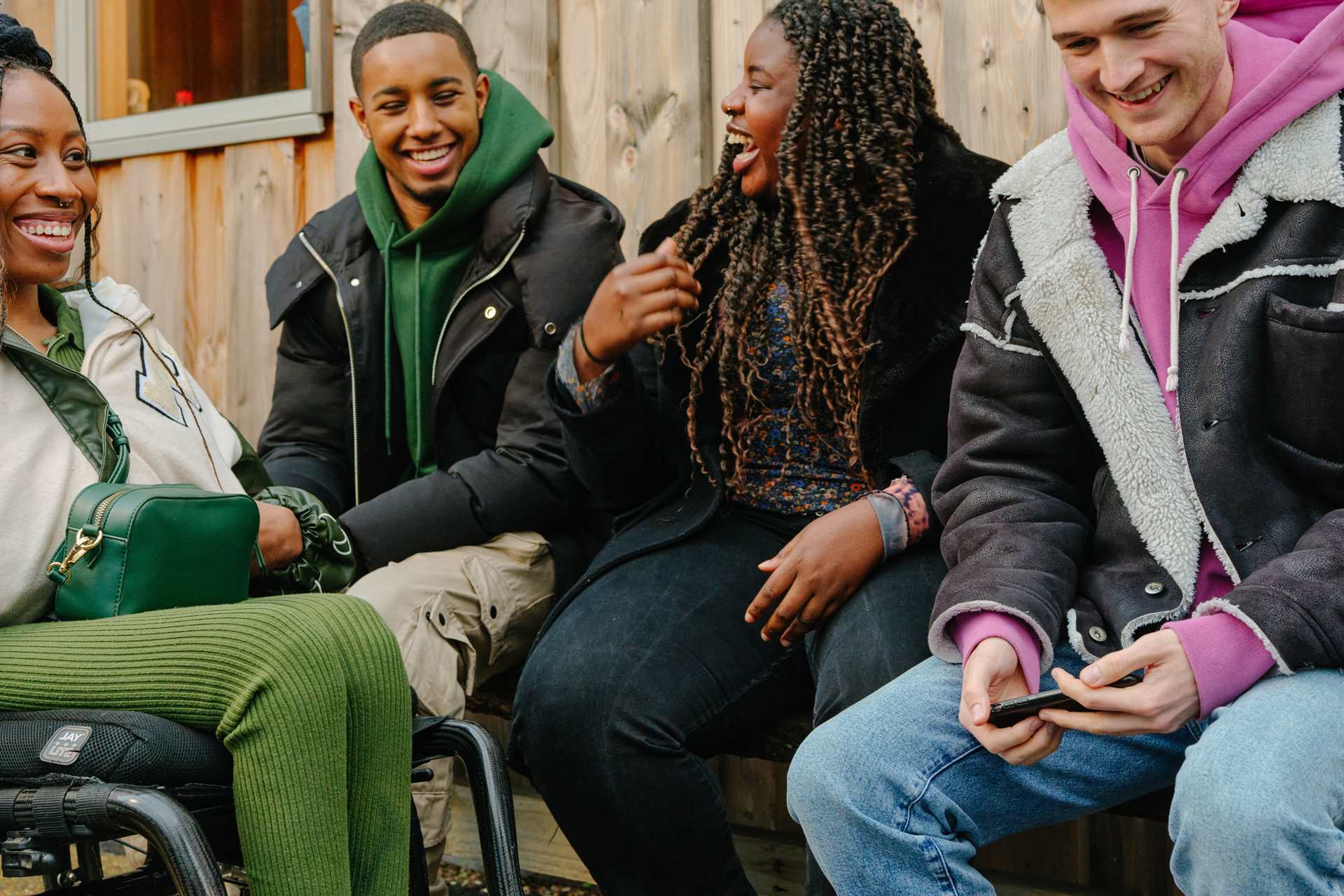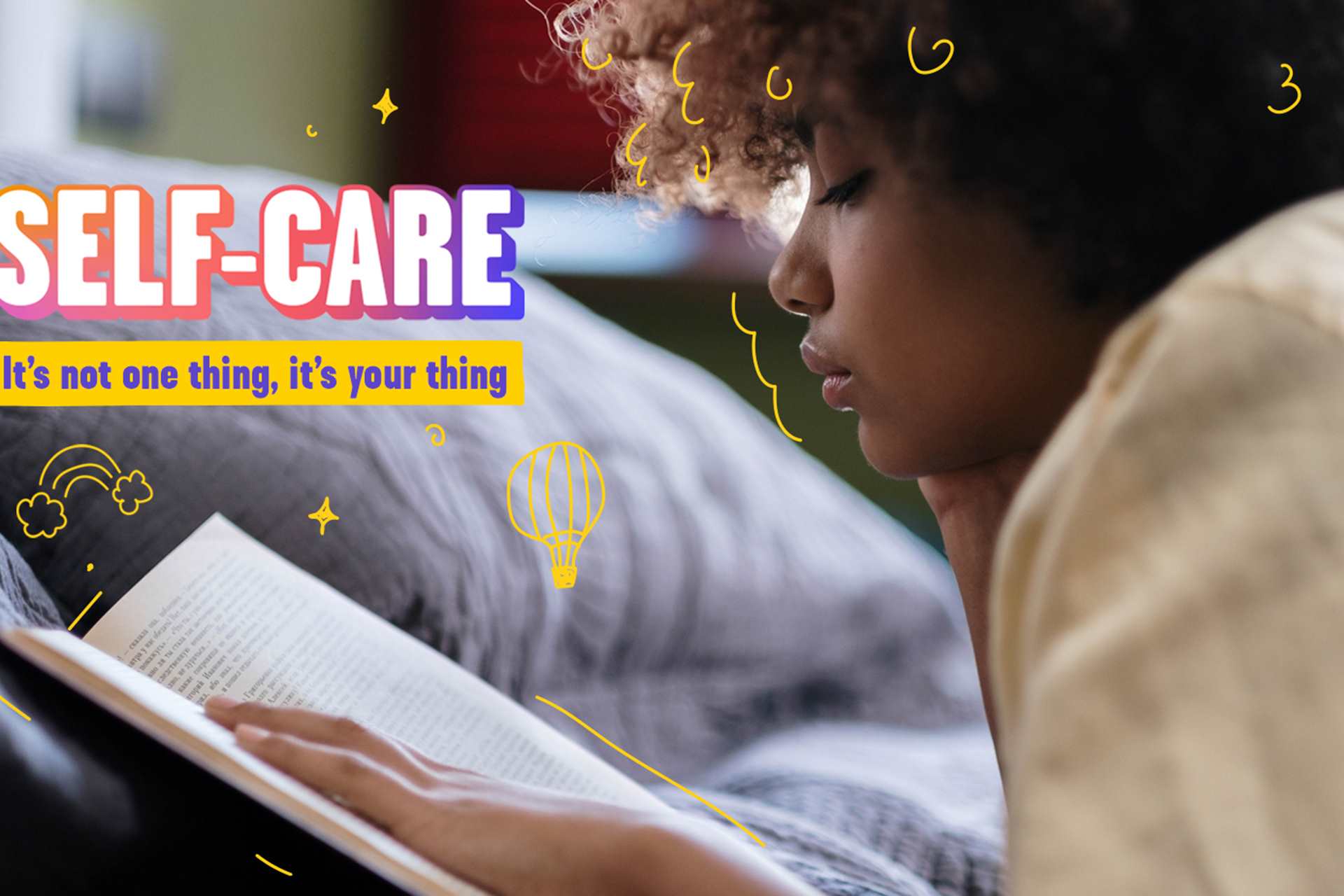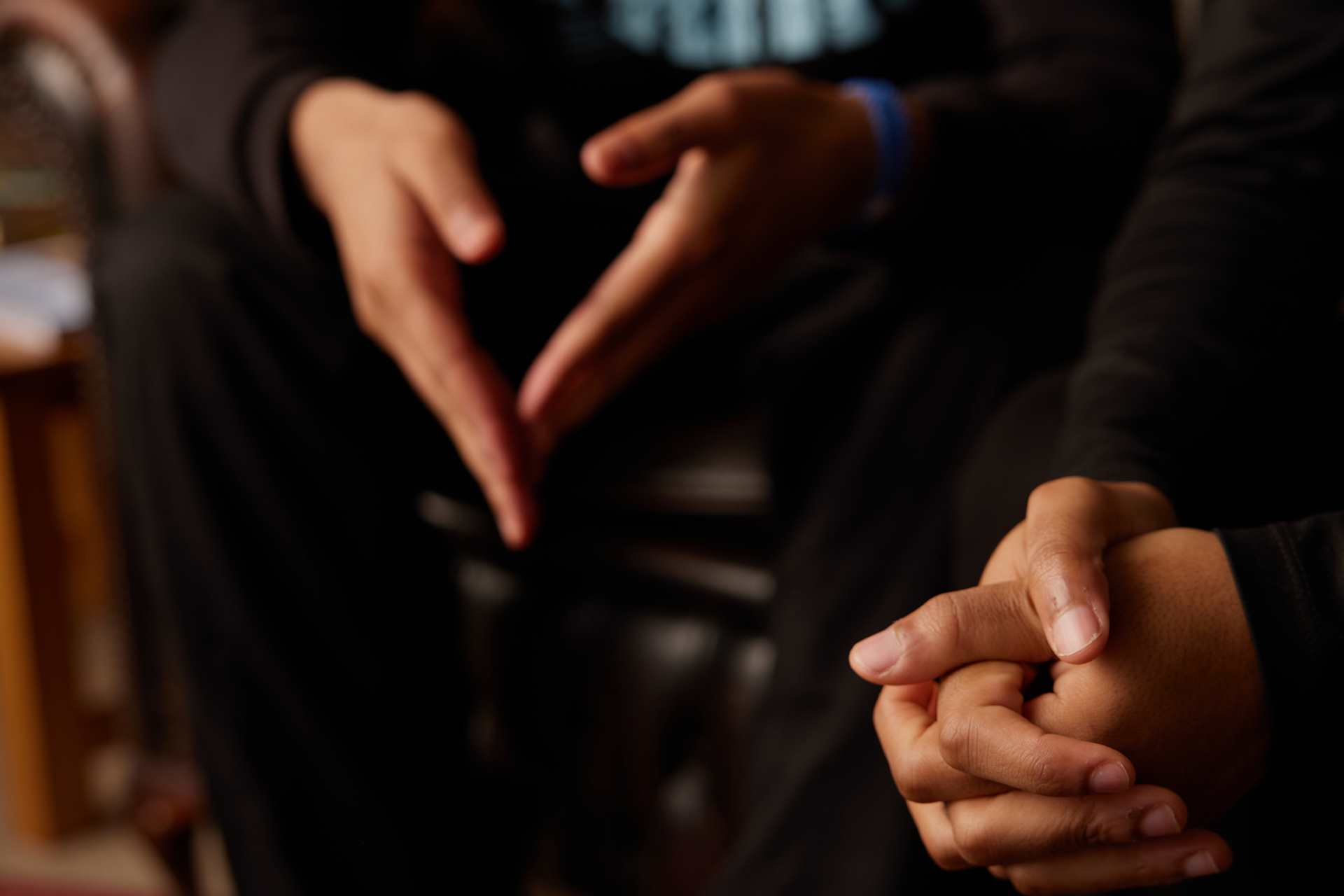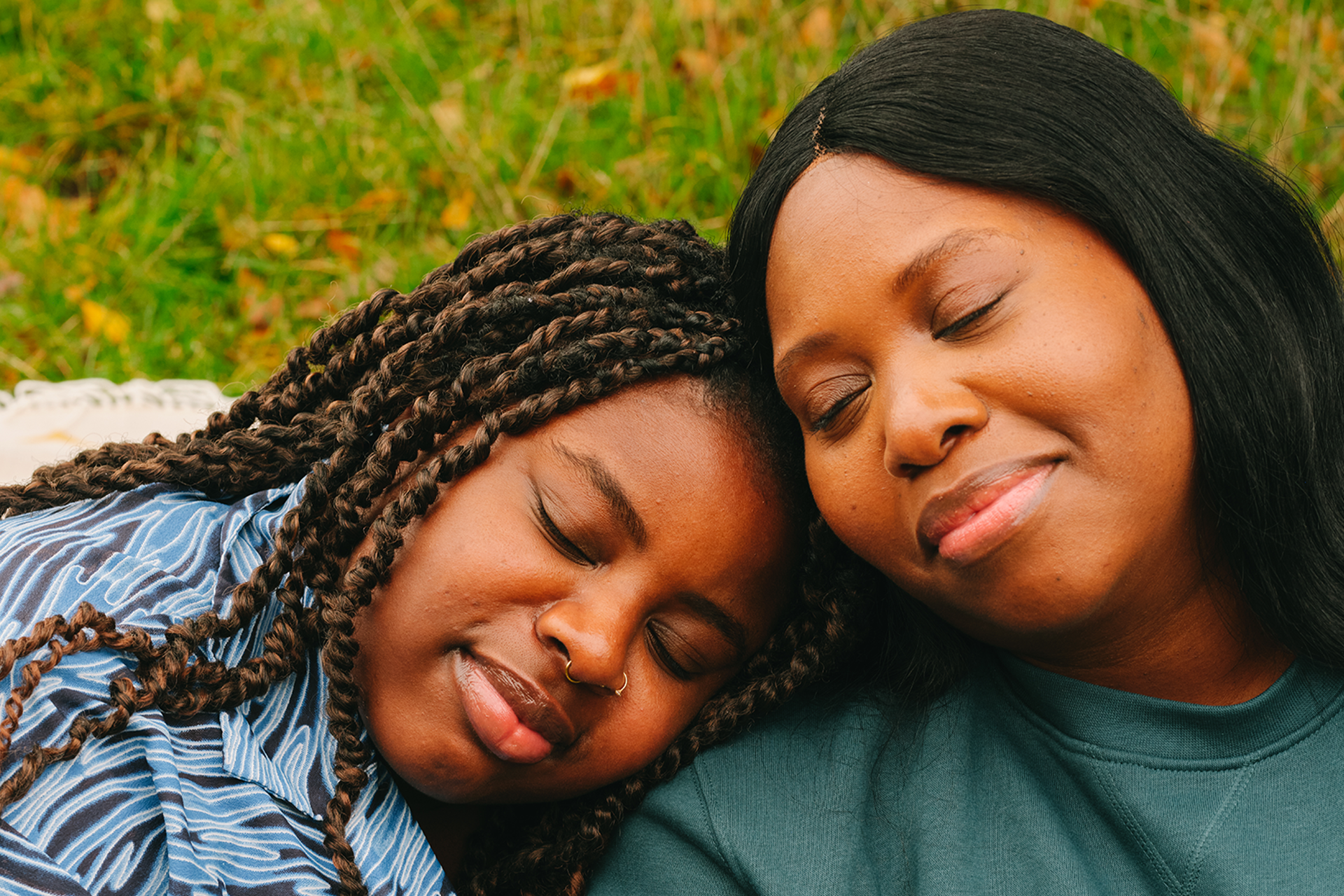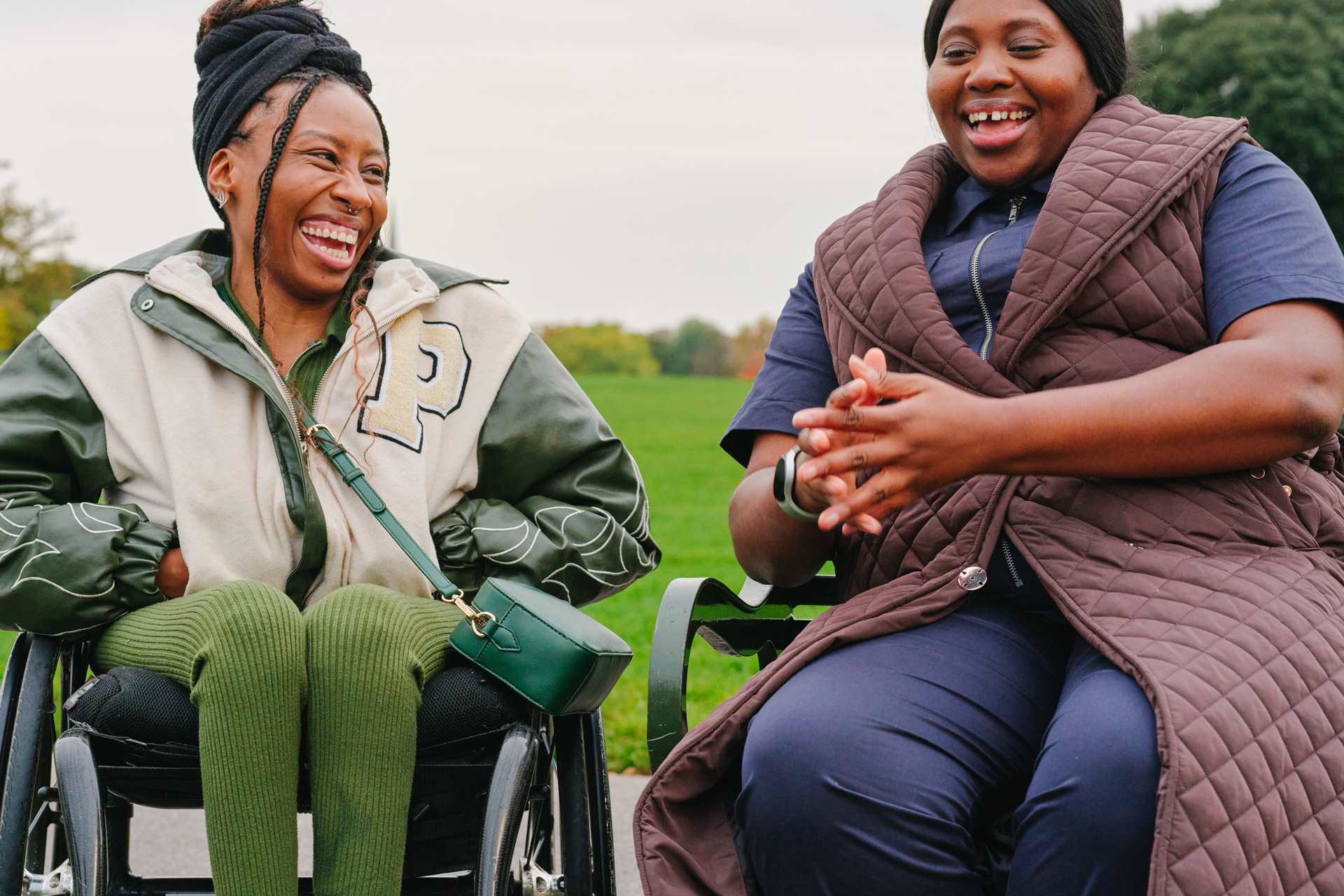Lots of things can make you feel down and unable to cope, from exam stress to mental health struggles like depression. Sometimes you know why, but other times it’s just a feeling you can’t shake.
When you’re low, even day-to-day things like seeing friends and getting dressed can feel harder. You might notice what you usually enjoy doesn’t give you the same boost. It’s tough, but there are ways to feel better.
We’re here to help you explore why you might be feeling down, and figure out what to do next.
I’m having negative thoughts about myself
Negative thoughts are those harsh, unkind things you tell yourself, like ‘I’m not good enough’ or ‘nobody cares about me’. They can show up when you’re stressed, feeling stuck, or comparing yourself to others.
It’s tough when you don’t feel good about yourself, whether it’s how you look, feel or behave. You might start thinking everything is your fault, or that you don’t deserve to feel good – but that’s not true. We all experience negative thoughts from time to time, but if they’re starting to take over, it’s time to get support. You deserve to feel comfortable with who you are and believe in yourself.
Here are some things that can help.
Talking therapies can help you deal with negative thoughts. You can speak to your GP and they can refer you. Take a look at our counselling and therapy guide for more on how to access therapy.
I’m struggling to look after myself
We all have things we need to do to look after ourselves, like getting enough sleep, eating well and personal hygiene. They can make us feel better and ready for whatever life throws at us.
But, when you’re feeling low, even the most basic tasks can feel impossible. Struggling with self-care isn’t your fault and it’s nothing to be ashamed of. Lots of us have times when it all feels too much.
Here are some tips to help you take care of yourself the best you can.
Think about who you feel comfortable reaching out to. They could help with chores, check if you’ve washed, drunk water or got some fresh air, or simply listen to you. If reaching out to someone doesn’t feel right, contact a helpline to speak with a trained professional.
This makes tasks feel less overwhelming. Here’s how our blogger, Luca broke down the task of washing their clothes when they had depression:
- Take my clothes out of the basket and sort them.
- Put them in the washing machine and start the wash.
- Take my clothes out and put them to one side.
- Set up the clothes drying rack.
- Hang the washed clothes on the drying rack.
- Once dry, take them off and fold.
- Put my clothes away into wardrobe/draws.
There are also ways to make tasks more accessible for you, like listening to music, sitting down or writing the task down.
There are apps that help you break tasks down, set reminders and find ways to boost your mood. Like Move Mood, Plant Nanny and Aloe Bud. The notes app on your phone is another great tool for journalling and tracking your mood.
Lorna shares more tips in her blog on taking care of yourself when things feel difficult.
There are days when I feel completely defeated and need time to gather my thoughts and try again when I’m mentally prepared. And this is completely fine.
I’m struggling with a mental health condition
Having a mental health condition can make getting on with life really tough. But remember, feeling better in yourself and good about life again is possible, even though it might not always feel that way.
If a mental health problem is making you feel down, read our guides below for tips and advice, or find help for a different mental health problem.
-

Feeling tense, worried or panicked.
-

Feeling constantly low, can’t enjoy things, and stuck with negative thoughts.
-

Experiencing extreme highs and lows.
Something traumatic has happened or is happening
Whether it’s from the past or happening now, trauma can have a lasting impact on your mental health. It can affect your mood, how you see yourself, and how you connect with others. Whatever you’ve been through, you deserve support. And our guides can help.
Recovery from mental illness is rarely linear, especially if you have trauma to unpack, explore and overcome. Be gentle with yourself in this process, giving yourself time to recognise and accept what you have been through.
Things you can do to feel better
-
Talk to someone you trust
Opening up can be tough, but talking to someone you trust is a great first step. Not sure how to start? Check out our tips on asking for help.
-
Speak to your GP
Your mental health matters as much as your physical health. If you’re struggling, your GP can help you access local support. Here’s how to talk to your doctor about mental health.
-
Take time out
Make time for what makes you happy – whether it’s walking, arts and crafts, or your favourite video game. Anything that calms your mind and makes you feel safe. Find more tips and advice in our guide to self-care.
Get help now
-
Samaritans
Whatever you're going through, you can contact the Samaritans for support. N.B. This is a listening service and does not offer advice or intervention.
- Opening times:
- 24/7
-
Childline
If you’re under 19 you can confidentially call, chat online or email about any problem big or small.
Sign up for a free Childline locker (real name or email address not needed) to use their free 1-2-1 counsellor chat and email support service.
Can provide a BSL interpreter if you are deaf or hearing-impaired.
Hosts online message boards where you can share your experiences, have fun and get support from other young people in similar situations.
- Opening times:
- 24/7
Whether you love the page or think something is missing, we appreciate your feedback. It all helps us to support more young people with their mental health.
Please be aware that this form isn’t a mental health support service. If you are in crisis right now and want to talk to someone urgently, find out who to contact on our urgent help page.
At YoungMinds we take your privacy seriously. If you’d like to read more about how we keep the information we collect safe, take a look at our privacy policy.


